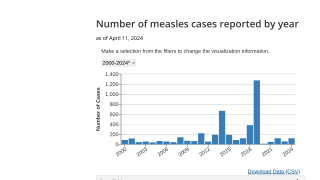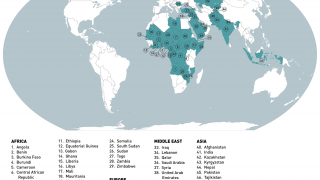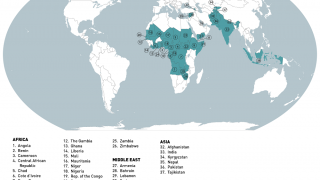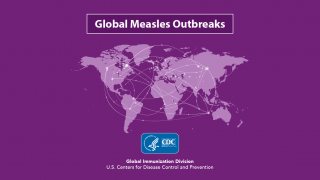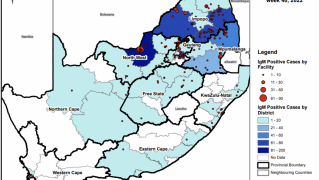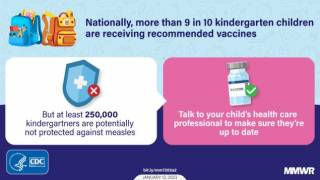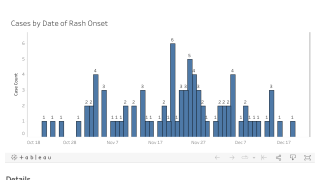Texas Longhorns Requiring Measles Immunity Prior to Matriculation

The University of Texas (UT) at Austin announced it will require incoming students for the Fall 2020 semester to show proof of measles immunity.
According to the University of Texas Health Services (UHS) website, this new vaccination requirement does not apply to UT students matriculating during the 2020 Spring and Summer semesters.
And, UT’s new medical clearance requirements depend upon age, classification as an entering international student or student who is a U.S. citizen (or U.S. permanent resident), and/or the semester entering UT Austin.
Furthermore, UT supports vaccination exemptions for medical and reasons of conscience, including a religious belief.
Sherry Bell, UHS consumer education and outreach coordinator told the DailyTexan on January 28, 2020, “The proposal for the requirement, which was approved in Fall 2019, was made to protect the health of students and reduce the impact of illness on their academics.”
Additionally, Dr. Terrance Hines, executive director, and chief medical officer for UHS, told the DailyTexan the ‘University requires international students to show proof of rubella and measles vaccinations.’
‘Domestic (UT) students are not required to obtain the rubella vaccination, because the U.S. eradicated the disease in 2004.’
In Texas, the Department of State Health Services (DSHS) reports ‘measles is highly contagious and is transmitted primarily from person to person by respiratory droplets and airborne spread.’
> Check your measles immunity using UltaLabs <
And ‘the incubation period is about 2 weeks from exposure to onset of illness. Persons are contagious from 4 days before the onset of rash to 4 days after the appearance of a rash.’
‘During a measles outbreak, susceptible persons, such as those without documented immunization or previous measles infection, should be isolated from those who have measles to prevent further propagation of the disease.’
‘In schools or other group settings, students who have not been immunized should be excluded from the setting for at least 21 days after the last date the unimmunized child was exposed and observed for signs and symptoms,’ says Texas DSHS.
Prior to vaccine introduction, annual measles incidence peaked at 85,862 in 1958 in Texas.
But, during 2017, just 1 case of measles was reported in Texas.
Throughout the USA, colleges continue to report measles cases in 2020, such as at Florida College on January 28, 2020.
The Centers for Disease Control and Prevention (CDC) says most measles cases reported during 2019 were related to international travelers. More than 73 percent of the measles cases were linked to the New York area.
Caused by a highly contagious virus, measles is a disease that spreads from person to person by breathing, coughing, or sneezing, says the CDC.
From January 1 to December 31, 2019, 1,282 individual cases of measles were confirmed in 31 states.
Moreover, 128 of the people (10%) who got measles were hospitalized, and 61 reported having complications, including pneumonia and encephalitis.
To alert the global community, the CDC reissued a Level 1 Travel Alert regarding various measles outbreaks on January 3, 2020.
This CDC Travel Alert says ‘Before you travel internationally, regardless of where you are going, make sure you are protected fully against measles. If you are not sure, see your healthcare provider at least 1 month before your scheduled departure.’
Unfortunately, a recent study reported that most eligible pediatric international travelers were not immunized against the measles virus prior to departure.
A Massachusetts General Hospital (MGH) study published on December 9, 2019, found that a large number of children traveling aboard are not protected from the measles virus due to a clinician decision or guardian refusal.
The MGH study was published in JAMA Pediatrics and reported 88.5 percent of measles vaccination–eligible school-aged travelers were not vaccinated at the pre-departure consultation
This study is important since children represent less than 10 percent of international travelers departing the USA but account for about 47 percent of known measles importation cases.
The CDC says measles can be prevented with 2-doses of the measles-mumps-rubella (MMR-II) vaccine. Children have the option of getting the Proquad vaccine, which protects against measles, mumps, rubella, and varicella.
These vaccines also protect people from rubella, which is important in the city of Austin, Texas. On January 16th, Austin Public Health announced a confirmed case of rubella, the 1st case since 1999.
Admitted UT students can call UHS at (512) 471-4955 to schedule an appointment to get required vaccines.
Measles vaccine news published by Precision Vaccinations
Our Trust Standards: Medical Advisory Committee











